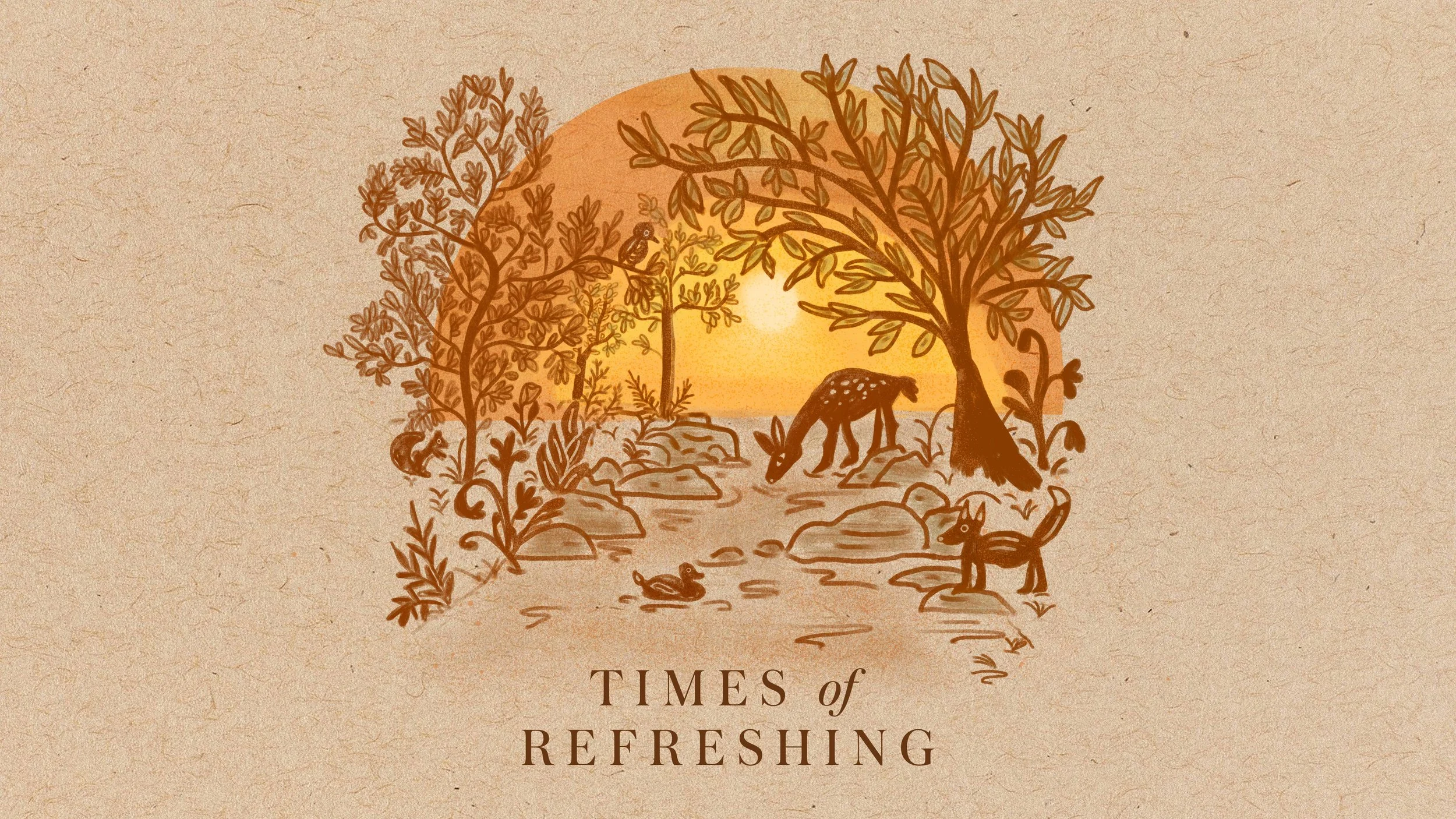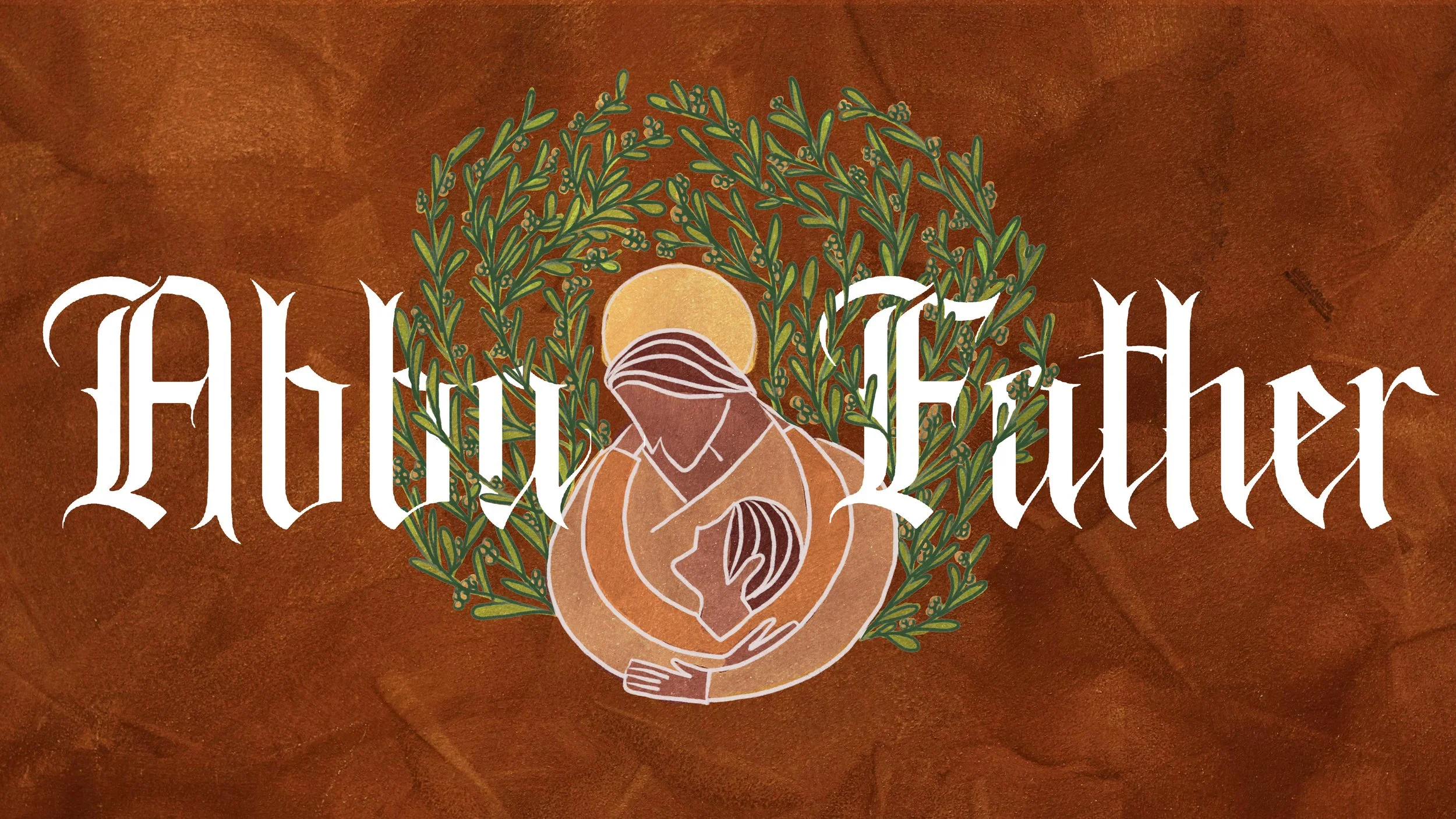The kingdom of heaven grows slowly, but it only moves in one direction. Jesus uses imagery of the mustard seed and tree to paint an image, pushing out the extremes of smallness and bigness. The birds that find shelter in the Kingdom are all sorts, even those considered undesirable. These parables are about patience - God works extraordinarily slow, and we have to trust God even as we do our part. We may never get a fully satisfying answer to the question, “why doesn’t God do something?!” beyond parables like the mustard seed. What we can do is take confidence that God heals the world through long-suffering love, which is not coercive nor controlling.
When we mature, God moves from being merely an object of our affection to becoming present in the world around us. Every human becomes an icon for the hidden face of Christ in our midst. The first stage of spiritual awakening is to see God as the focus of our adoration as we encounter Christ’s love and forgiveness. However, those initial feelings and zeal can wane. Rather than thinking we are taking a backwards step in our faith, we might recognize the invitation from God to allow God to move from being an object of worship to permeating the world around us, most profoundly seeing Christ in the face of our fellow humans. God becomes the lens through which we see the world - when Christ embodies himself in “the least of these” he is inviting us to seek out new revelation of himself in those who need our help.
By naming both our passions and limitations, we are better able to discern how God is inviting each of us to help repair the world. We often suffer from paralysis when it comes to justice - we can’t do it all, so sometimes we do next-to-nothing, keeping our heads down. Yet God created us with limitations that we are meant to bless, not as an excuse but to embrace our smallness and better discern how we can contribute.
Our repentance is evidence that God’s mission to reveal His justice has pierced our very hearts, and our participation in God’s mission to reveal His justice to this world is the evidence of our repentance. At the moment we hear the message or glimpse a vision of the world that God is recreating, and begin to discern the dissonance between that world and ours, is the moment that God’s kingdom reaches into our heart. If repentance is entrance into the world made right, then the church is the glimpse of that world made right.
God is not limited to only working through Christians to bring justice upon the world. We can bless wherever we see God’s justice coming to the earth, and we can speak up when we see unjust practices perpetrated by human institutions. Part of our struggle is that we are so entrenched in politics because it’s the new religion - it gives us a sense of belonging, meaning, and a concrete worldview. Even as American Christians we can see “justice” through a partisan lens that may become a blindspot to advocating for human dignity. Part of the work of salvation is, as we are found more and more “in Christ”, we are able to see what is going in the world about us and critique political claims that run contrary to God’s will.
Justice, in the eyes of God, is the great leveling of humanity towards a “common good”. After the Fall, fear and competition settle in quickly, we become in-human, negating the image-of-Godness in our fellow humans. We create whole systems that scatter and show favorability, mountains and valleys of human value. Biblical justice is primarily seen as restoration of dignity for all image-bearing humans, and not simply retribution for wrongdoing. Righteousness (tzedekah) and justice (mishpat) are related terms that speak of our legal obligations and moral aspirations towards those who are in the valley. Any type of “justice” that increases human disparity is not God’s justice.
When we are lulled to sleep by the evil of the present moment, we must lift our eyes to the horizon to remember what is Good, and where we are heading. It is so easy to believe that what we are perceiving now in the fog is all that is true, and that this world is irredeemable. Scripture invites us to lift our heads above the fog to gain perspective - looking back to remember what God considers good, and looking forward to see our destination, so that we might be ready to advocate for good against evil in our present moment.
It is not enough to merely sing songs and celebrate our holy days. These things should prepare us to partner with God in the healing of the world. It’s easy to critique “the Western Church” for hypocrisy - but what about us? Real worship reminds us of God’s character and will; conforms our will to God’s; and then prompts us to do the work we have been given to do in our day. We address the pain of the world from the perspective of God, not modern ideologies.
We participate in lifting up the world to God in our hearts through our intercessory prayers, saying “Your will be done”. Some of us think we’re bothering a still-faced God when we pray; but to intercede is to carefully consider what we know God’s will to be and to come into agreement with it - we look at the world through the lens of Christ. Sometimes the anxiety we feel about the world around us is the groaning of the Spirit within, and an invitation to intercede. Intercession, when rightly held, spurs us to right action - we are formed by the “amen” to God’s will and set out to become God’s hands and feet.
Our faith is not merely an exchange of ideas, but of tangible actions through which we connect God to the world. The laying of hands in prayer is symbolic, but it means more than that. In a world marred by no touch or bad touch, healing touch repairs and restores. We become more vulnerable, more open when we are connected tangibly. When lay hands on one another, we become the hands of Jesus to bless, heal, deliver, and empower.
Confession opens us up to the continual forgiveness of God so we might choose back into love. We are not what we do. However, what we do speaks of who we think we are. And who we really are is determined by Who gave us the gift of life. Sin is not what separates us from God; it is what draws God close to us so we might be reconciled. It was the human God’s merciful solidarity that healed shame and guilt, climaxing in the cross: “Father forgive them for they know not what they do”.
The Psalms are our prayers because they are, first and foremost, the prayers of the Beloved Son, who embodies our exile before the Father. Jesus was a part of the exiled Jewish community living under Roman occupation; The Psalms were His prayer book. They were the communal prayers that taught Him how to speak to His Father praise and sorrow, without any masks. If the psalms are the prayers of Jesus bringing His whole self before our Father, then they — in all their grief, joy, and violent rage — must be the prayers that lead us to Him as well.
A single word uttered from an open heart can do more for us than any amount of anxious babbling. There’s a lot of mental and emotional debris floating around us and within us that needs to be removed so we can see God clearly. Jesus reminds us that humility is our first posture in prayer, remembering that God is God and we are not.
One of the most ancient prayers we can pray is this: "Lord Jesus Christ, Son of God, have mercy on me (a sinner).” A simple prayer like this is meant for repetition so that it becomes like breathing, sinking down from lips to heart - your spirit prays even when your lips aren’t.
A rich prayer life connects us to God from the inside-out, and from the outside-in. It’s valuable to have prayers that arise from our thoughts and feelings spontaneously, but often we might find ourselves stuck in where to go beyond that. Spontaneity does not equal authenticity, and it doesn’t lead us to maturity in the faith. We need guidance to learn God’s character and will. Liturgical prayers helps lead us places we might not go in our wandering.
Everything about our faith flows first from sharing in divine love with Jesus through prayer. Often the story of Mary and Martha is reduced to “don’t do stuff, just sit,” but there is something deeper at work. Jesus is not critical of Martha’s activity itself, but her motive. She is anxious because she finds her value in her good behavior and she is projecting her frustration upon her sister. Action and contemplation actually go hand-in-hand - to “pray without ceasing” is to merge our communion with God and our daily activity. Without contemplation, our activity burns us out and we become filled with contempt.
We need a “rule of life" to steward vision from God so we don’t get distracted. It is a fact of life that maturity, in any form, does not happen to us spontaneously. The life of the Spirit we are called to live into sees both our passions (what makes our hearts come alive) and our discipline (what we commit to regardless of how we feel) as gifts meant for our liberation.
The wisdom of the Spirit does not fit inside the wisdom of the world; it transcends all our political ideologies and philosophies. We are spiritual babies when we try to use Jesus just justify our preferred party in the political binary in this country. Sometimes we keep God’s wisdom out of our thinking about politics; sometimes we believe that we can use political power and control to bring about the Kingdom. A life of the Spirit means we having a different foundation that teaches us to live creatively, maintaining our integrity in the public sphere. As we mature in God’s sacrificial love, we cling less tightly to the wisdom of the world and find our home in the wisdom of the Spirit.
Right action and contemplative thinking are important, but it is the love in our hearts for Jesus that keeps us close to him. To love God with our whole self is to pay careful attention to how each of our faculties are being redeemed by the word spoken to our souls, calling us Beloved. Contemplative thinking opens us up to possibilities beyond the conventional, right action helps us embody the truth, and emotional attachment binds us in the heart so devotion can sustain the journey.
I wonder if we were the ones Jesus asked, “do you love me?” how we would respond. We often think of love in sentimental terms, as feelings and inclinations. The Greatest Commandment, however, is an imperative to close the gap between our vague aspirations and the material reality of how we lives our lives; to bind the heart, mind, and body to our soul. I think here is is especially important we remember that Jesus does not ask us questions like this to bring us shame, but rather, to come to terms with this gap.
Love is an action. When I move towards my beloved, I have to attune my attention to her needs and desires. Rather than spraying loving gestures into the wind willy-nilly, I must learn - what can I do to love my beloved as she actually is, not the illusion I have built in my heart and mind? Sentimentality refuses to take an honest assessment of our actions, and it gives little heed to to desires of the object of our love.
As Christians we can fall prey to anti-intellectualism or rigid thinking. We might have been told “don’t think, just believe”, or we might have been told what we’re supposed to believe doctrinally but not how to hold those beliefs so that they lead to encounter; both types of thinking keep us on the surface of life, only reaching for what we already know.
At the empty tomb, John bends over as a sign of humility to see the strips of linen lying on the deathbed without a body to accompany them. Contemplative thinking enables us to to lean in and listen for resurrection possibility beyond our assumption about how life is “supposed” to work. The word contemplation derives from con- meaning “with, together”, and the root temple, which means “a space demarcated for sacred consecration”. To contemplate is to establish a sacred space in the mind to be joined with God, which is the goal of the spiritual life.






